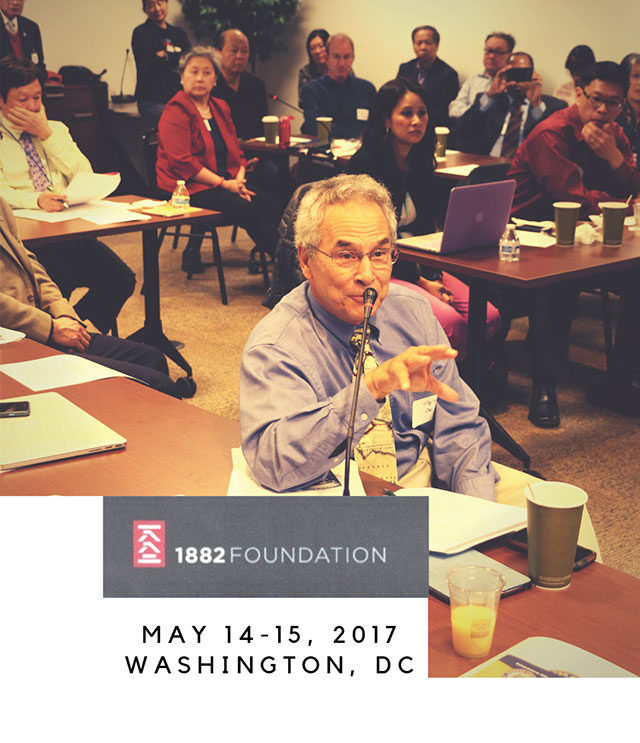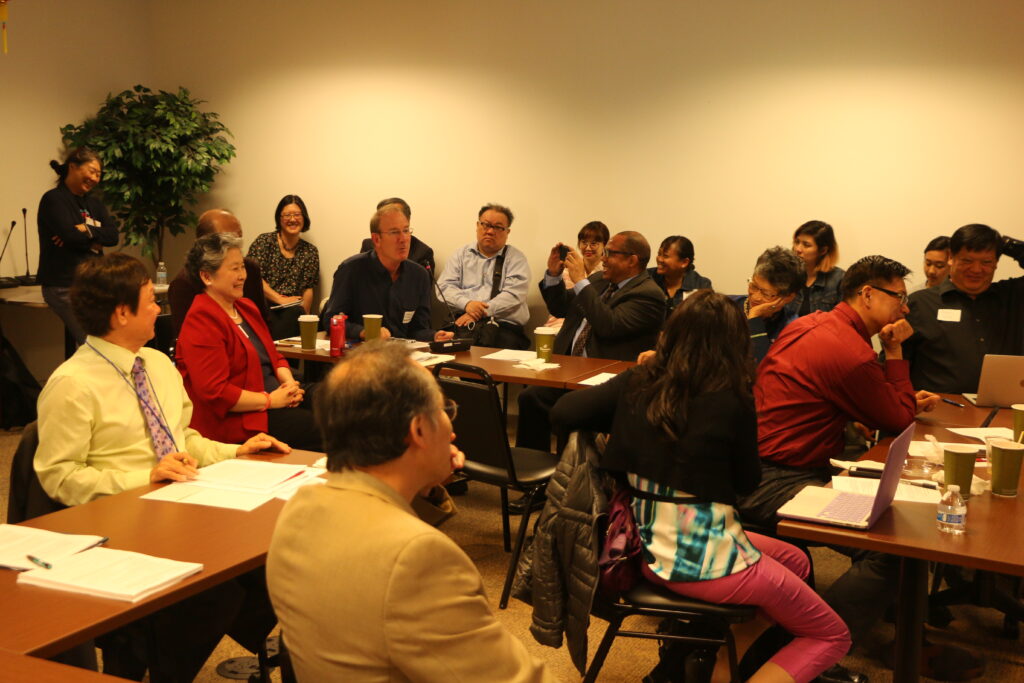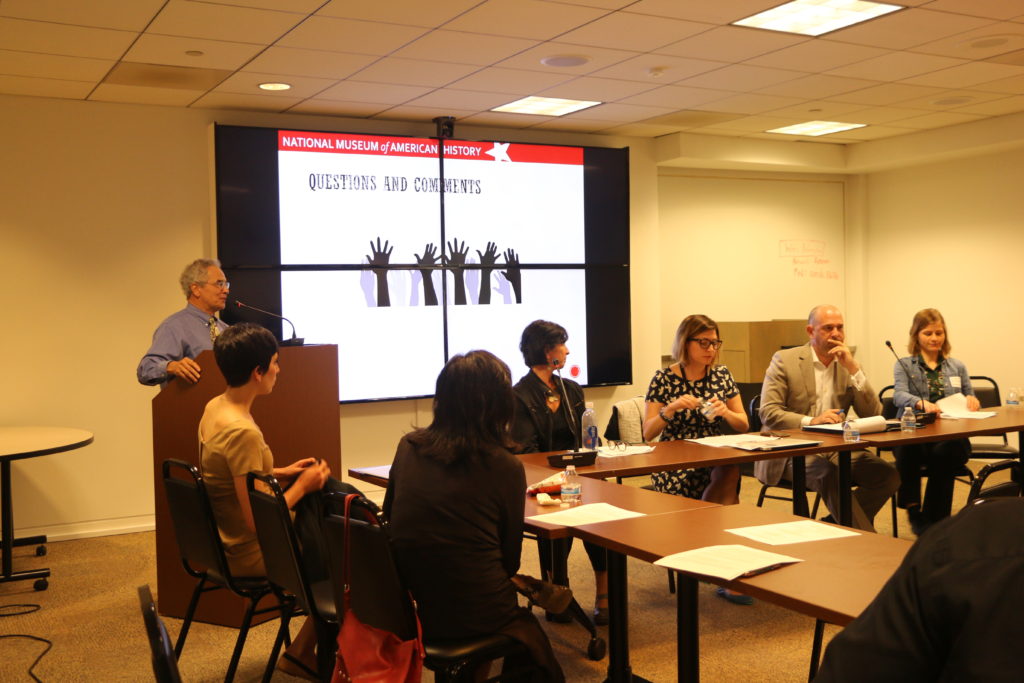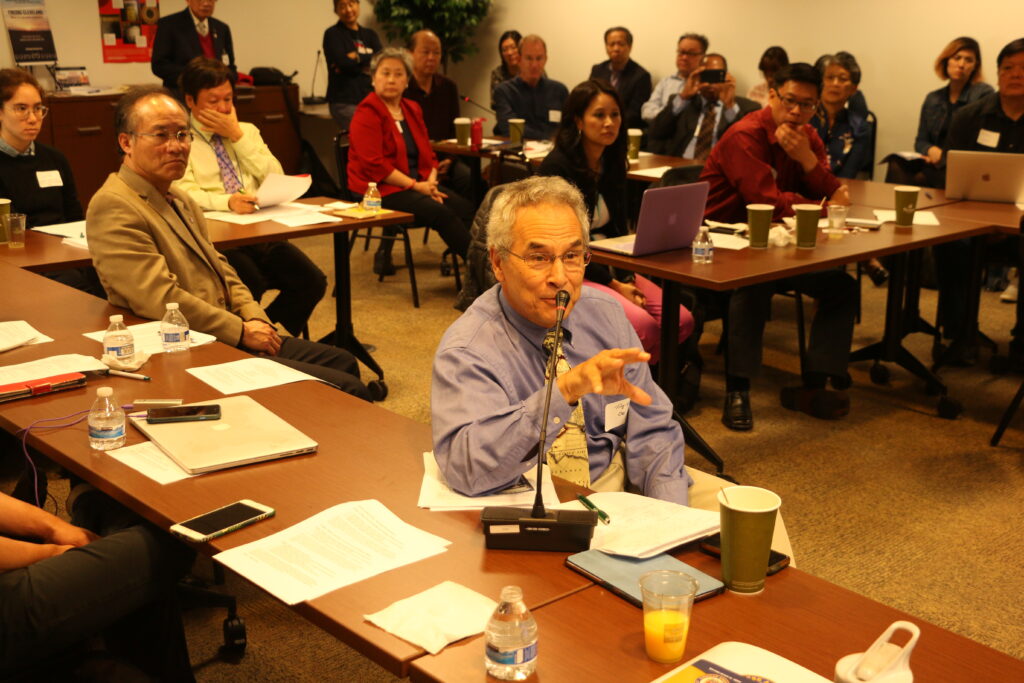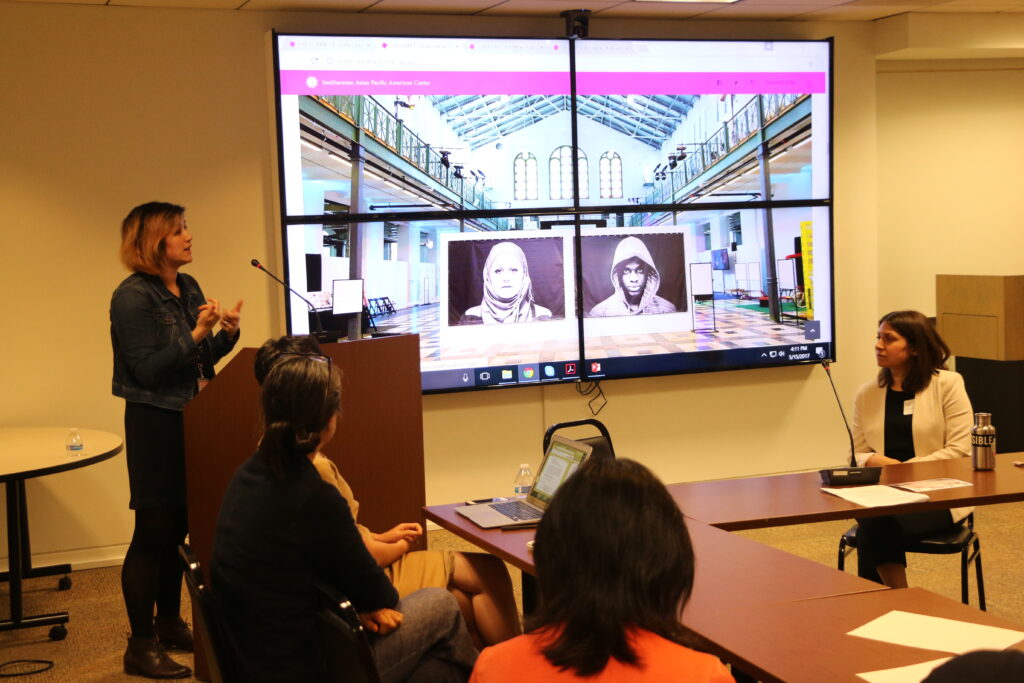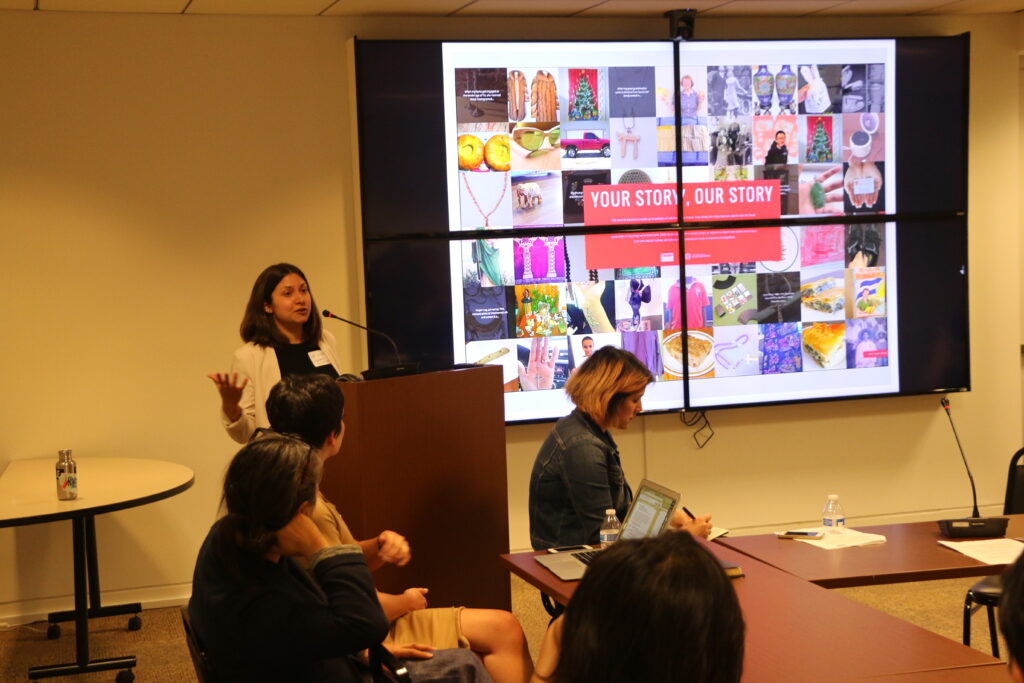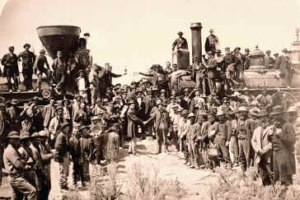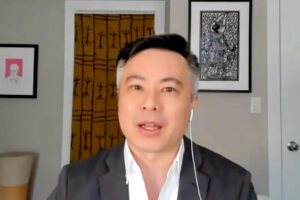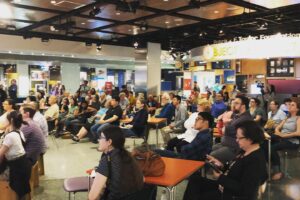Introduction
At the 1882 Symposium, government and private sector stakeholders interested in preserving Chinese American history share best practices and strengthen collaborations. This year, we focused on how we tell our history, shape storytelling, and consider heritage and its preservation to be a civil right. As we have done since Symposium I, we set milestones for the next symposium.
Appropriately, we began with Chinese American Short Film Seminar, which was preceded by a film screening and community discussion on the 135th anniversary of the Chinese Exclusion Act of 1882 on May 6. Thanks to Center for Asian American Media, we screened excerpts from Ric Burns and Li-shin Yu’s PBS documentary “The Chinese Exclusion Act” and from Jenny Lew’s “Separate Lives, Broken Dreams.” Jean Pfaelzer, author of “Driven Out,” added to the discussion.
This film screening and the following weekend’s film seminar were supported by DC Humanities Council’s “Who’s a Washingtonian” grant. The Chinese American Citizens Alliance provided a matching amount. The Chinese Community Church and the Alexandria Black History Museum opened their facilities; and, of the many individuals who helped, Shirley Woo from the church and Audrey Davis from ABHM stand out. Audrey also moderated a conversation with film producer Paula Madison at an evening screening of “Finding Samuel Lowe.” This film kick started the seminar the next day which Jenny Cho, Education Director for OCA/DC, guided expertly.
After the film seminar, we moved to the Ameson Foundation in DC. Alan Spears of the National Parks Conservation Association opened the Symposium and laid its philosophical foundation by articulating the civil rights imperative for the work we do. The evening reception provided a book-end to the individually produced shorts by screening excerpts of “The Chinese Exclusion Act”–PBS historical storytelling at its grandest. U.S. Representative Judy Chu from California provided remarks.
Among the team of note takers, photographers, organizers, and supporters that included Jennifer Sugijanto (who was primary drafter of this report), Ting-Yi Oei, John Kusano, Stan Lou, Franklin Odo, Stan Tsai, Annie Xiao, Russ Gong, Fanglan Chen, Lorenzo Tucker, Debra Preston, Shanna Roth, and Kelly Flaherty, Stephen Smith, Chi-ling Tong and CC Yin, two people deserve to be singled out. Sojin Kim of the Center for Folklife and Cultural Heritage at the Smithsonian provided expert advice and arranged for our many meetings both to plan for the Symposium and to discuss education projects throughout the year. Ali Smith, Director of Communications for the 1882 Foundation, brought everyone to DC and held everything together as the Seminar’s Project Manager. She and Jennifer are already planning for Symposium VI.
Ted Gong, Executive Director
1882 Project Foundation
Short Film Seminar
Featuring Filmmakers Paula Madison, Baldwin Chiu, Larissa Lam, Paul Jew, and Ken Eng. The 1882 Foundation’s story-telling seminar examines the intersection of race, migration and identity in three sessions.
The 1882 Foundation’s Chinese American Short Film Seminar (May 13th-May 14th) explored filmmaking as both identity building and potent storytelling. Films presented at the Alexandria Black History Museum grappled with the role of lineage and faith, and added to the defining of “Chinese American.”
These included a full length screening of “Finding Samuel Lowe,” in which three African Jamaican-American siblings from Harlem searched for information about their grandfather, Samuel Lowe. Their search took them from New York and Toronto to Jamaica and China. Film writer Paula Madison explored intersections between international communities and race through familial ties.
A short film, “Finding Cleveland” by Baldwin Chiu and wife Larissa Lam, discovered roots in the Mississippi Delta, where Chinese live between black and white struggles. Their short film touched upon the community impacts of racist legislation like the 1882 Exclusion and the Page Acts, which split families and left gaping holes felt acutely by children and grandchildren decades later.
Paul Jew’s “The Wok From Albuquerque to San Francisco” focused on a single act of kindness in Albuquerque and its ripple effect across time and space to his Auntie Tane’s Wok Shop in San Francisco Chinatown. It touched on both Christian grace and Chinese ancestral rites. Ken Eng’s excerpt from “My Life in China” explored these rites in quiet poignancy with his father’s return to China. Both films tell a spiritual aspect of Chinese diaspora that binds them despite separations of geography and generations.
Preservation As a Civil Right
Featuring Alan Spears, National Parks Conservation Association: Alan opens the Symposium—the importance of telling our stories and preserving our places.
Historic preservation is a core civil rights in terms of reclaiming physical and temporal space that has been traditionally denied to ethnic groups in America. As a national entity, we put on the landscape the things we value—a battlefield, a monument, a plaque. Absence on the historical landscape can therefore be interpreted as a political means to deny a community its voice.
Regarding Asian Pacific American stories, how many are not being told? Where are these stories, how do we promote them, and how do we secure a federal level of protection? The answers to these questions need to be rooted in civil rights.
The purpose of the National Park Service is to take broad stories and make an inclusive history. We want a service that is accessible, inclusive, and relevant.

